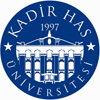| From the Desk of the Editor |
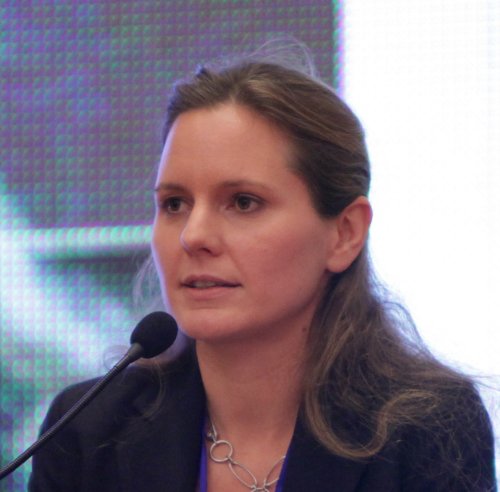 |
This issue of TPQ finds the Turkey-European Union relationship at a crossroads. While there is widespread recognition that some form of progress is necessary to salvage the current low in relations between the two entities, different perspectives exist on how to go about it. Some see Turkey's eventual EU membership as inevitable, but dwell on how and when this will take place, others debate alternative forms of mutually beneficial integration. As always, from every perspective and especially on controversial questions, we try to present a wide range of views from influential players in the field. . .
|
| Read More. . . |
|
| Interview with Demetris Christofias |
 |
We are absolutely ready to continue the dialogue for a solution of the Cyprus problem during the Cyprus Presidency of the Council of the European Union. The Cyprus Presidency is independent of the efforts aimed at the settlement of the Cyprus problem and the reunification of the country and our people. (. . .) We will not use our position as Presidency of the Council for the promotion of national positions, as is being claimed in Turkey. . . |
| Read More. . . |
|
Customs Union: Expectations versus the Reality
Hayati Yazıcı |
| This article focuses on three interrelated issues of Turkey-EU relations. Initially, an overview of Turkey-EU relations and some reasons that have led to Turkish frustration and disappointment towards the EU are presented. The next section focuses on the Customs Union between Turkey and the EU, the changes it brought to Turkish legislation and regulatory institutions and their impact on Turkey's economy. It is argued that, despite some important benefits to the Turkish economy, the CU has not met ?thus far? the original expectations. This argument is followed by highlighting the EU's "unfulfilled obligations" towards Turkey concerning the Customs Union. The Minister points out that the current visa requirements violate the agreements signed between Turkey and the EU, and constitute discrimination against Turkish citizens. Finally, the initiatives of the Ministry of Customs and Trade to increase the trade volume with other neighboring regions are noted. . . |
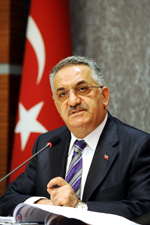 |
| Read More. . . |
|
Women's Rights in Turkey
Fatma Şahin
|
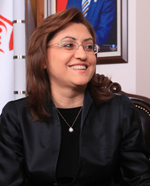 |
This article elaborates on Turkey's progress in areas such as the increase in girls' school enrolment rates and the drop of infant mortality rates, as well as efforts in the area of domestic violence. The Minister points out the centrality of women in driving change and development, as well as the importance of having a range of actors ? such as women's organizations, the private sector, and universities- involved in the transformation, to ensure that positive legal changes actually function efficiently in real life. The Minister also recognizes that women's employment and participation in local politics is lagging behind, despite egalitarian laws. . . |
| Read More. . . |
|
Strategic Dialogue: A Concept in Need for Action
Alexander Graf Lambsdorff
|
| The tremendous political changes that have been taking place in the Middle East and North Africa have stressed the importance for the materialization of the EU-Turkey Strategic dialogue. Turkey needs the EU for its economic modernization. On the other hand, Turkey's political system seems attractive to many political forces in the Arab Spring countries and can be used as inspiration for their democratization process. The Strategic Dialogue, however, needs to become separated from Turkey's EU accession negotiations. This article puts forward several concrete suggestions to increase the cooperation between the two sides. . . |
 |
| Read More. . . |
|
EU and Turkey: Accession Prospects
Carlo Casini
|
 |
There are many economic, geopolitical and diplomatic issues at stake related to Turkey-EU relations and Turkey's potential accession to the EU. Both sides have significant mutual economic interests. Additionally, Turkey is crucial for Europe's security, and can also play a constructive role in the stabilization and democratization process of the Arab Spring countries. Several opponents of Turkey's accession claim that Turkey will undermine the very core of the EU identity, which is based on Christianity. This article argues, however, that the true foundations and identity of the EU are based on the principles of democracy, equality, and respect for human dignity and human rights. According to this interpretation, Turkey's accession is not only feasible but also desirable. Turkey can bridge Christianity and Islam, and contribute to Europe's goals. But a peaceful solution to the Cyprus issue is needed and Turkey must ensure that the non-Muslim minorities can practice their religion peacefully and securely and increase its efforts and cooperation with the EU in order to address the flux of illegal immigrants that pass from its territory to Europe. . . |
| Read More. . . |
|
A Common Future: Turkey and the European Union
Umut Oran
|
| Turkey's challenges require a strong and bold leadership that can think smart and act strategically without losing sight of universal values. The Turkish society deserves freedom, democracy and justice and a country where everybody can speak their mind without any fear, where people can demand their rights in front of an effective court, where people are equal regardless of their gender, ethnic or sexual identity. Turkey can only achieve these goals by taking responsibility; blaming others will not solve problems. . . |
 |
| Read More. . . |
|
President Fran?ois Hollande on the Foreign Policy Front
Marc Pierini
|
 |
The newly elected French President, Fran?ois Hollande will face significant challenges in the domestic, European and foreign policy arenas. This article highlights some major and pressing foreign policy issues that will be high on the French President's agenda, such as the prospects for the withdrawal of French troops from Afghanistan, mending relations with Turkey, and engaging with the Arab Spring countries. The article also elaborates on the challenges President Hollande will face concerning France's role within the EU. . . |
| Read More. . . |
|
Turkey-EU Relationship: The Rationale for a "Third Way"
Francesco M. Bongiovanni
|
| The Schuman Declaration of 1950 made one thing clear: "Europe will not be made all at once, or according to a single, general plan. It will be built through concrete achievements, which will create first a de facto solidarity." Since then, the "European Project" has been expanding beyond its initial expectations. Still, Europe lacks a clear sense of identity and its borders have never been defined. When it comes to enlargement, which has been part of the European Project's goals, no question is more challenging than that of Turkey's accession to the EU. In this article, the two main points of view regarding Turkey's accession are examined, and a "third way" is proposed as a more realistic path for Turkey-EU relations. . . |
 |
| Read More. . . |
|
The European Project and Geopolitics of Energy
Sergiy Korsunsky
|
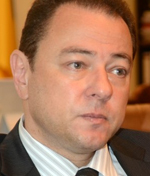 |
Even though the European project is not "complete" yet, from a geopolitical point of view the EU has by and large been a success, particularly in the economic field. However, the Eurozone has been recently experiencing negative growth, also fuelled by an increase in energy prices. This outcome has been partially caused by Russia's growing weight, as the EU's main energy supplier, on the EU's geopolitical and economic stability. In order to offset Russian power and influence on the EU, Turkey and Ukraine should be considered as important partners in the EU's energy policy. This could also be an important step towards the finalization of the "European project" in general. . . |
| Read More. . . |
|
Visa-Free Travel for Turkey: In Everybody's Interest
Alexandra Stiglmayer
|
| Today Turkey is the only EU candidate country whose citizens are obliged to obtain a Schengen visa before being allowed to enter the EU. This is a source of intense frustration for Turkish citizens and officials alike. So far the EU has refused to offer Turkey a visa liberalization process like the one that it conducted with Western Balkan countries a few years ago, and which it is now conducting with Moldova and Ukraine. This process requires a country to carry out reforms that help protect the EU's external borders; in return, the visa requirement is lifted. The EU's refusal runs counter to its own security interests. The Turkish-Greek border is the main gateway to the EU for irregular migrants. The EU needs Turkey's full cooperation in order to reduce illegal migration to the EU ? but it needs to offer something in return. A visa liberalization process would also be smart in view of a growing number of court decisions that have declared the visa requirement for Turkish nationals illegal in certain cases. Such a process would radically improve EU-Turkey relations and inject new momentum into the flagging accession process. . . |
 |
| Read More. . . |
|
The Balkans Dilemma
Ahmet Funda Tezok
|
 |
This article examines the current dynamics of the EU enlargement process towards the Western Balkan countries. Despite the fact that this region has historically been an integral part of Europe and the EU's reassurance to eventually integrate the Western Balkan states, several problems remain. With the exception of Croatia, that will become an official EU member state in 2013, all the other Western Balkan countries still face significant political, economic, administrative and diplomatic problems, and are not ready to join the EU. On the other hand, EU's enlargement fatigue and the current economic crisis have further complicated the situation. . .
|
| Read More. . . |
|
Ankara - Brussels Visa Negotiations
Zeynep ?zler
|
| Against the backdrop of an accession process that has come to a virtual halt, the visa-free travel is the most tangible and visible area that Turkish nationals associate mostly directly with EU membership and seek to reap benefits from. The visa issue has been at the forefront of Turkey-EU relations and has become highly "politicized" and even "securitized". It has also assumed a sui generis nature, which falls at odds with EU law, values and the coherence of EU policies. . . |
 |
| Read More. . . |
|
Civil-Military Relations in Turkey
Sami Faltas
|
 |
The Turkish government has won its power struggle with the General Staff. Now that the primacy of politics has been established, democratic control of the military has improved. However, the government now faces a challenge of a different nature. Behind the scenes, conservative Islamic movements are exercising strong influence on parts of the security sector. Now Turkey needs to strengthen oversight of the government by state bodies, an independent judiciary, free media, and civil society. Such oversight can only be success -ful under the rule of law. If Turkey does not transform itself now into a fully-fledged democracy, it will slide backward toward authoritarian rule. . . |
| Read More. . . |
|
Legal Reforms in Turkey: Ambitious and Controversial
?zg?r Aşık
|
| Both domestic demand and the EU accession process have trigerred a significant legal reform agenda in Turkey. Some important improvements are already in force, but there are still a number of reforms needed. Meanwhile, new controversies have arisen, especially with respect to the independence of the judiciary as well as the worrisome quality of justice. Important inconsistencies between normative acts and legal practice are the subject of heated discussion, thus eroding public confidence in the judiciary system and accordingly, in the rule of law. . . |
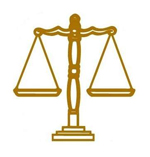 |
| Read More. . . |
|
EU's Role in Nagorno-Karabakh
David Janssen
|
 |
Since the ratification of the Treaty of Lisbon in 2009, the European Union (EU) has tried to make its voice heard more clearly on the international stage by creating the European External Action Service and strengthening the role of the High Representative for Foreign Affairs. However, these and other tools do not seem to increase the EU's weight in conflict resolution in its wider neighborhood. In the Nagorno-Karabakh conflict, the EU's efforts are hampered by competing interests of third actors, by the inadequacy of the tools at its disposal and not least the ambitions of its own member states. . . |
| Read More. . . |
|
|
|
|


















